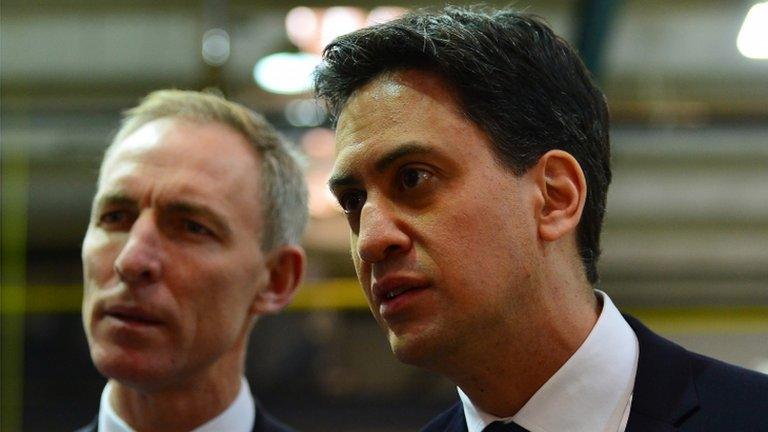Major urges Labour to rule out post-election SNP deal
- Published
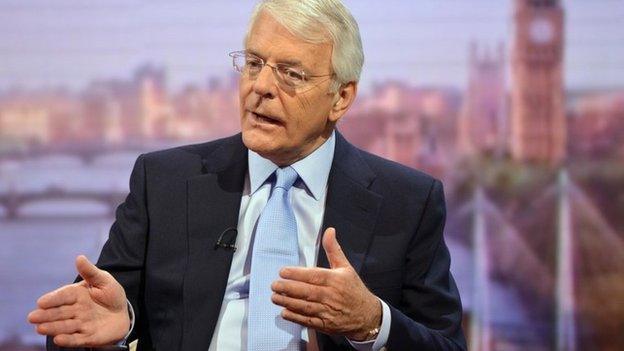
Sir John said Labour had "to make a choice"
Sir John Major has urged Labour to rule out a coalition with the SNP in the event of a hung Parliament.
The former Conservative prime minister said it was "shameful" Labour had not rejected a deal with a party "whose principal aim is to break up the UK".
The SNP, forecast to make substantial gains in May's poll, said the comments were "embarrassing" for Labour.
It came as the SNP suggested Trident would not be an obstacle to supporting a Labour minority government.
The SNP has never said it would go into a formal coalition with any other party at Westminster, should no party command a majority after the 7 May poll.
The party has already officially rejected any deal with the Conservatives in those circumstances.
'Confidence and supply'
But the SNP has not ruled the possibility of it supporting a minority Labour government on an issue-by-issue basis, an arrangement known as "confidence and supply".
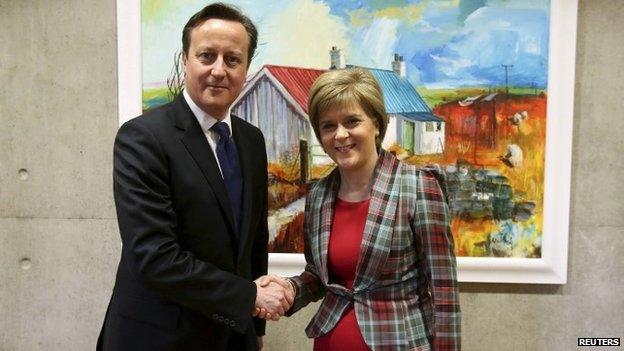
The SNP's Nicola Sturgeon has ruled out any deal with David Cameron
Sir John, Conservative prime minister between 1990 and 1997, urged Labour leader Ed Miliband to shut the door on any formal or informal agreement with the SNP.
Writing in the Daily Telegraph, external, he said a Labour-SNP alliance would be "a lethal cocktail for the United Kingdom" as the SNP would "enter into any agreement with Labour with one overriding aim - to break up the UK".
He added: "Labour now have to make a choice. They must summon the courage of their convictions and declare their intent.
"The British people - north and south of the border - do not deserve to be misled. Labour must remove any doubt.
"If the outcome of the general election is inconclusive, will they refuse to govern with the support of a party whose principal aim is to break up the UK."
'Scottish voice'
According to the Telegraph, a majority of Labour's 41 Scottish MPs are also pressing Ed Miliband to rule out any formal deal with the SNP.
Speaking last month, Mr Miliband said he was concentrating on winning a majority at the general election and not focusing on doing a deal with the SNP.
SNP deputy leader Stewart Hosie said both Labour and the Conservatives were afraid of a "powerful Scottish voice" in Westminster.
"John Major wants the Tories to be re-elected in May, and therefore he wants Labour to rule out an agreement with the SNP, because that would stop the Tories.
"There are no circumstances in which the SNP would put the Tories into government - the question is if Labour have the same commitment, with a number of senior Labour figures promoting voting Tory in Scotland, and even the idea of a "grand alliance" between the Tories and Labour."
Opinion polls have suggested the SNP could return as many as 56 seats at Westminster - where it currently has six MPs - and potentially hold the balance of power in the event of no party winning an overall majority.
'Economic chaos'
The Guardian, external reported that Nicola Sturgeon had dropped demands that a minority Labour government must cancel a new Trident nuclear weapon in return for the Scottish National party's backing at Westminster.
According to the newspaper, the SNP leader and Scottish First Minister said her party could vote for Labour policies on a case-by-case basis without a deal on Trident, which both the Conservatives and Labour want to retain.
In response, she tweeted, external: "What I actually said was SNP would never vote for Trident".
The Conservatives said a Labour government "propped up" by the SNP would result in "economic chaos for the country".
"Ed Miliband and the SNP have signed the pre-nup and are now half-way up the aisle," said Conservative Party chairman Grant Shapps.
"Day after day, vote after vote in Parliament, Ed Miliband would be forced to negotiate with Alex Salmond - the man who tried to break up Britain - about how to run Britain."
Asked about Sir John Major's comments, No 10 said it believed the issue of Scottish independence had been "settled for a generation" after September's No vote.
- Published6 March 2015
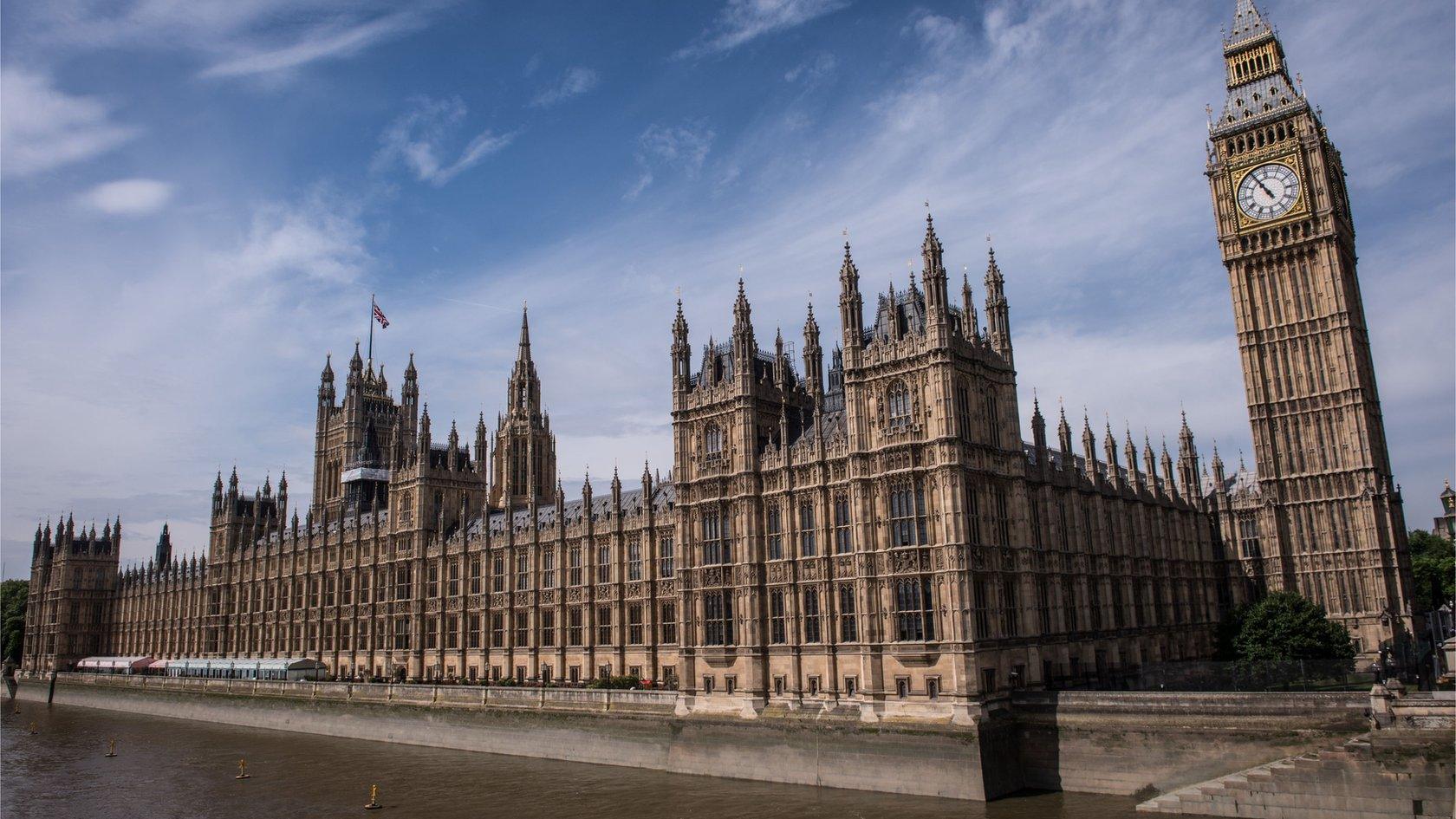
- Published6 March 2015
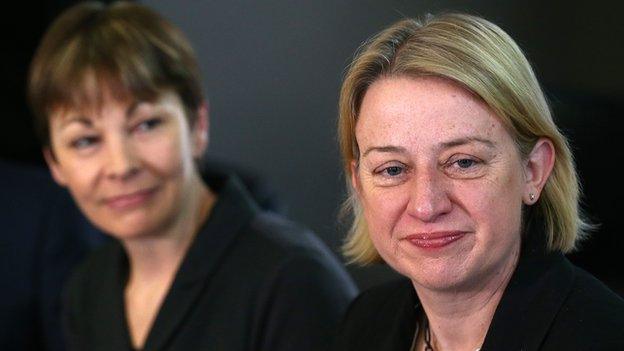
- Published5 March 2015
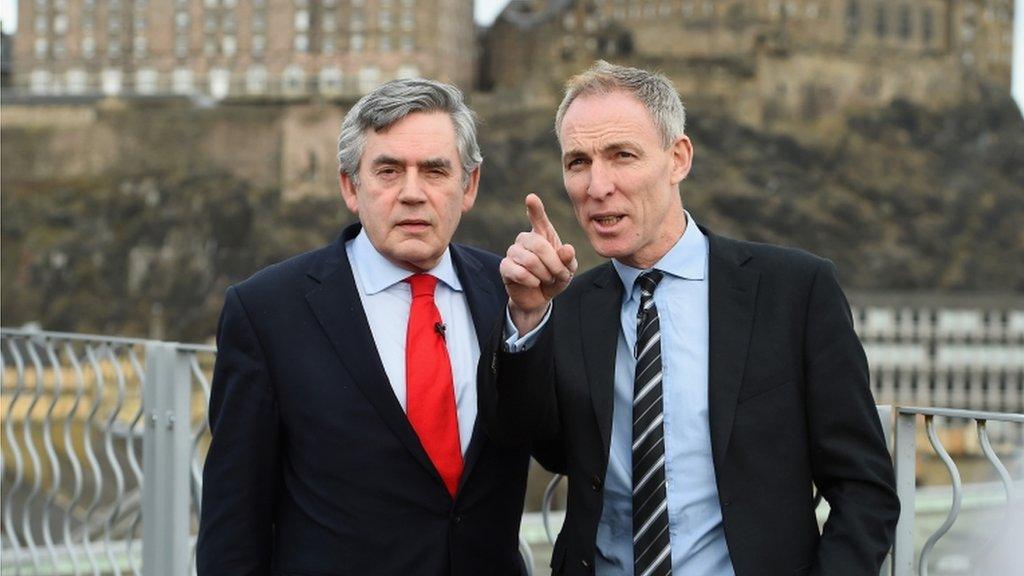
- Published29 January 2015
